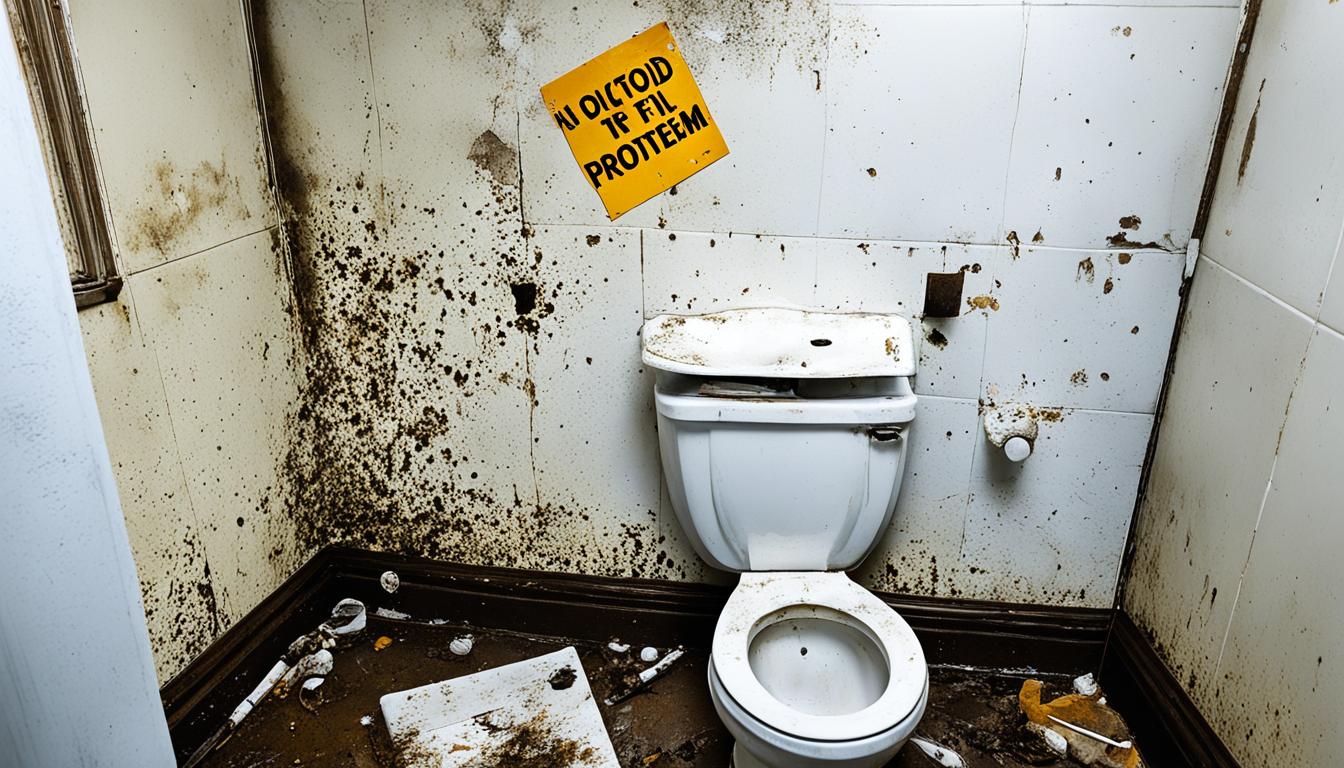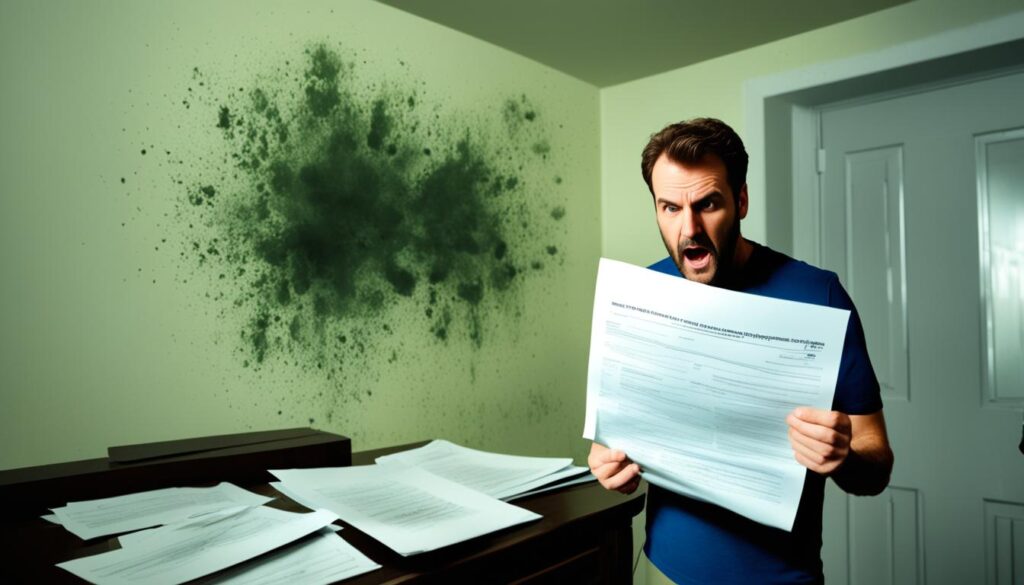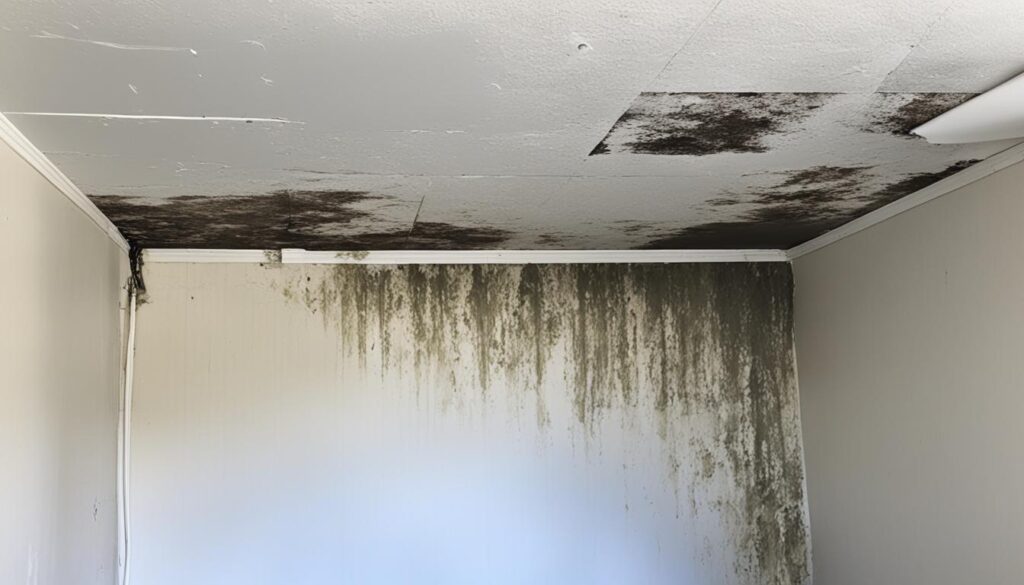
Landlord Refuses to Fix Mold – Tenant Actions
Dealing with a mold problem in a rental property can be a frustrating and potentially hazardous situation for tenants. Unfortunately, some landlords may refuse to address these issues, leaving tenants to navigate the complexities of mold remediation on their own. In this article, we will explore the actions that tenants can take when faced with a landlord who refuses to fix a mold problem.
Key Takeaways:
- Tenants have the right to live in a mold-free environment and landlords have an obligation to address mold issues promptly.
- Understanding tenant rights and landlord responsibilities is essential when dealing with a mold problem.
- Tenants can take legal action, such as requesting repairs or filing complaints, if their landlord refuses to address the mold issue.
- Tenants should also be aware of their responsibilities in maintaining a rental unit to prevent mold growth.
- Landlord negligence in addressing mold issues can have serious consequences for both tenants and landlords.
Understanding Tenant Rights and Landlord Responsibilities
When it comes to renting a property, tenants have specific rights that protect them from unsafe living conditions, which includes issues such as mold growth. Landlords, on the other hand, have a legal responsibility to maintain a safe and healthy rental property for their tenants. In this section, we will explore the tenant rights related to mold, as well as the responsibilities landlords have in addressing and preventing mold problems.
Tenant Rights on Mold
Tenants have the right to live in a mold-free environment. This means that if there is mold in the rental unit, it is the landlord’s responsibility to address the issue promptly. Mold can pose serious health risks, especially to individuals with allergies or respiratory conditions. Landlords must take proactive measures to ensure that the rental property is free from mold and that any existing mold is remediated effectively.
Landlord Responsibilities on Mold
As landlords, there are several key responsibilities to be aware of when it comes to mold in rental properties. First and foremost, landlords have a duty to maintain the property in a habitable condition. This includes promptly addressing any maintenance issues, such as leaks or water damage, which can contribute to mold growth. Landlords should also conduct regular inspections to identify and address any potential mold problems before they become a major issue.
“Landlords must take proactive measures to ensure that the rental property is free from mold and that any existing mold is remediated effectively.”
In addition to preventative measures, landlords should respond promptly to tenant reports of mold. They should conduct a thorough investigation, assess the extent of the mold issue, and take appropriate remediation actions. This may involve hiring professionals for mold testing and removal, ensuring that the property is thoroughly cleaned and restored to a safe condition.
Tenant Maintenance Responsibilities
While landlords bear the primary responsibility for addressing mold issues, tenants also have a role to play in maintaining a mold-free environment. Tenants should promptly report any signs of mold or water damage to their landlord or property management. It is essential to inform the landlord as soon as possible to prevent further mold growth and potential health risks.
Tenants should also take proactive measures to prevent mold growth in their rental unit. This includes proper ventilation, using exhaust fans in high-moisture areas, such as the bathroom, and promptly reporting any maintenance issues that can lead to mold growth, such as leaks or plumbing problems.
Dealing with a Mold Problem – Legal Options for Tenants
If you find yourself facing a mold problem in your rental property and your landlord refuses to address it, you have legal options to assert your rights as a tenant. Taking the appropriate steps can help you resolve the issue and ensure a safe and healthy living environment. Here are some legal options you can consider:
- Request repairs in writing: Notify your landlord in writing about the mold issue and request immediate repairs. Be sure to keep a copy of the letter and any responses for future reference.
- Document the problem: Take photographs or videos of the mold growth as evidence of the issue. Keep records of any conversations, emails, or texts related to the mold problem and your attempts to address it with the landlord.
- Withhold rent: In some cases, tenants may have the right to withhold rent until the mold issue is resolved. However, it is essential to check your local laws and consult with a legal professional before taking this step to understand the specific requirements and risks involved.
- File a complaint: If your landlord still refuses to address the mold problem, you can file a complaint with your local housing authority or health department. They may conduct an investigation and take action against the landlord if they find violations of housing or health codes.
- Seek legal action: If all else fails, you may need to pursue legal action against your landlord. Consult with a tenant rights attorney to discuss your options and determine the best course of action based on your specific circumstances.
Remember, it is crucial to familiarize yourself with your state and local laws regarding mold problems, tenant rights, and repair requests. These laws can vary, so understanding your legal rights and obligations will help you navigate the situation effectively.
Comparison of Legal Options
| Legal Option | Key Points |
|---|---|
| Request repairs in writing | Formally notify the landlord of the mold issue and request immediate repairs. Keep a copy of the letter for future reference. |
| Document the problem | Take photos or videos of the mold growth, keep records of conversations and communications related to the issue. |
| Withhold rent | Check local laws and consult with a legal professional before considering this option. Understand the risks and requirements involved. |
| File a complaint | Submit a complaint to the local housing authority or health department for an investigation and potential enforcement actions. |
| Seek legal action | Consult with a tenant rights attorney to explore the possibility of taking legal action against the landlord. |
By being aware of your rights as a tenant and taking the appropriate legal measures, you can work towards resolving the mold problem and ensuring a safe and habitable rental property.

Mold Remediation – Tenant’s Responsibilities
When it comes to dealing with mold in a rental unit, tenants have certain responsibilities to ensure the health and safety of their living environment. Taking proactive measures to prevent and address mold issues is essential, as it can help minimize the risk of health problems and preserve the condition of the property.
Maintaining a Clean and Dry Living Space
One of the key responsibilities of tenants is to maintain a clean and dry living space. This includes regular cleaning and proper ventilation to prevent moisture buildup, which can contribute to mold growth. By keeping the rental unit free from excess moisture and humidity, tenants can significantly reduce the likelihood of mold problems.

Reporting Mold Issues Promptly
In the event that tenants discover mold or suspect a mold issue in their rental property, it is crucial to report it to the landlord immediately. Timely reporting ensures that the problem can be addressed promptly, preventing it from spreading and causing further damage. Tenants should document the mold problem with photographs and provide a written notice to the landlord, specifying the location and extent of the mold growth.
Following Landlord’s Instructions for Remediation
If the landlord acknowledges the mold issue and takes steps to remediate it, tenants must cooperate and follow any instructions provided. This may include temporarily vacating the premises during the mold remediation process or taking precautionary measures to prevent cross-contamination. It is important for tenants to understand that their active participation in the remediation process is vital for a successful resolution.
Proactive maintenance and timely reporting are crucial in preventing and resolving mold issues in rental properties. By fulfilling their responsibilities, tenants can contribute to a healthier living environment and protect their own well-being.
Conclusion
Throughout this article, we have explored the concerning issue of landlords refusing to address mold problems in rental properties. We have highlighted the importance of understanding tenant rights and landlord responsibilities in such situations. Tenants have the right to live in a safe and healthy environment, free from mold and its potential health risks.
When faced with a mold problem that their landlord neglects, tenants should be aware of the legal options available to them. By asserting their rights, tenants can request repairs, withhold rent, file complaints, or even pursue legal action if necessary. It is crucial for tenants to take decisive actions to protect their well-being and hold negligent landlords accountable.
Landlord negligence in dealing with mold issues can have severe consequences. Prolonged exposure to mold can lead to respiratory problems, allergies, and other health issues. Additionally, it can cause damage to personal belongings and reduce the overall habitability of the rental property. Landlords must fulfill their responsibilities and promptly address mold problems to ensure the well-being of their tenants.
In conclusion, it is essential for tenants and landlords to be fully informed about mold-related issues and their respective obligations. Tenants should advocate for their rights and take appropriate action when faced with a mold problem and a negligent landlord. By doing so, they can help create safer and healthier living environments for themselves and future tenants.




